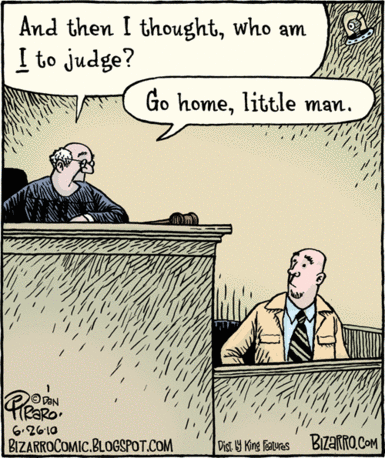Jesus was heading to the tomb of Lazarus, and he wept. It's one of the most famous verses in the Bible, mostly because of an accident of publishing-- it's the only verse that has two words. Easiest verse to memorize, "Jesus wept."
But why did he weep? Well, it made sense to the people around him that he wept. After all, his good friend had just died. Of course he wept. He had just lost a loved one.
But he knew that he was going to raise Lazarus from the dead. He hadn't lost him at all, and he knew it.
Some say that Jesus was sympathizing with those who were mourning. He understood their grief.
But if that was the case, Jesus was just faking it. He wasn't really grieving at all. And didn't he rebuke people for faking grief, telling them they had no reason to mourn because the girl was only sleeping, not dead at all? Why should he weep here?
The key here is that Jesus had just been told the same thing by both of Lazarus' sisters: "Lord, if you had been here, he wouldn't have died." What did they imply? That Lazarus was dead now. They had lost him. He wasn't coming back. Jesus had come too late.
Jesus wept because Mary and Martha-- both strong followers of Jesus-- didn't understand the truth. That it wasn't too late. That it was NEVER too late. They assumed that once Death got his grimy paws on Lazarus, that no one could make him give their brother back up. Jesus wept because they assumed that Death was stronger than Jesus. That there was a limit on Jesus' ability to command spirits.
Jesus wept because they had faith, but not the full faith he wanted them to have. That the kingdom is here, now. That we can ask and Jesus will do greater things than we had ever thought possible. That God's power goes beyond the power of possibility.
And we often act the same way. Somehow, we think that the norm applies to Jesus. That Jesus can't overcome what is always the case. That Jesus can't do miracles. I've heard many teach that miracles can't happen today. Others say that miracles do happen, but we can't expect them to happen. Others say that God doesn't operate that way anymore, now we have God's word (as if they didn't have God's word in Jesus' day). Many don't bother to pray for their sick, or for pained communities, because there's nothing they can do.
And Jesus weeps.
But why did he weep? Well, it made sense to the people around him that he wept. After all, his good friend had just died. Of course he wept. He had just lost a loved one.
But he knew that he was going to raise Lazarus from the dead. He hadn't lost him at all, and he knew it.
Some say that Jesus was sympathizing with those who were mourning. He understood their grief.
But if that was the case, Jesus was just faking it. He wasn't really grieving at all. And didn't he rebuke people for faking grief, telling them they had no reason to mourn because the girl was only sleeping, not dead at all? Why should he weep here?
The key here is that Jesus had just been told the same thing by both of Lazarus' sisters: "Lord, if you had been here, he wouldn't have died." What did they imply? That Lazarus was dead now. They had lost him. He wasn't coming back. Jesus had come too late.
Jesus wept because Mary and Martha-- both strong followers of Jesus-- didn't understand the truth. That it wasn't too late. That it was NEVER too late. They assumed that once Death got his grimy paws on Lazarus, that no one could make him give their brother back up. Jesus wept because they assumed that Death was stronger than Jesus. That there was a limit on Jesus' ability to command spirits.
Jesus wept because they had faith, but not the full faith he wanted them to have. That the kingdom is here, now. That we can ask and Jesus will do greater things than we had ever thought possible. That God's power goes beyond the power of possibility.
And we often act the same way. Somehow, we think that the norm applies to Jesus. That Jesus can't overcome what is always the case. That Jesus can't do miracles. I've heard many teach that miracles can't happen today. Others say that miracles do happen, but we can't expect them to happen. Others say that God doesn't operate that way anymore, now we have God's word (as if they didn't have God's word in Jesus' day). Many don't bother to pray for their sick, or for pained communities, because there's nothing they can do.
And Jesus weeps.













